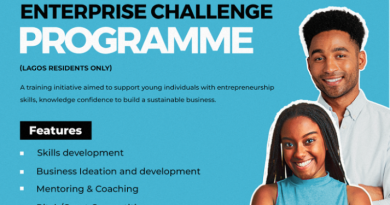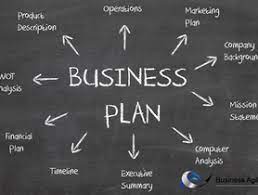Three Tactics That Can Help Entrepreneurs Get On The Fast-Track To Success
As startup founders, it sometimes feels like the universe is conspiring to knock us off. We experience this firsthand when we have a working product that breaks during a demo to investors. Or when our lead investor pulls out of the deal at the last minute, leaving us on our own, staring into the abyss, while drowning in despair.
The constant feeling of swimming against the tide is shared among all of us, and there is even a “law” to describe it, known as Murphy’s law. It stipulates that if anything can go wrong, it will.
As pessimistic as it may seem, this is partly true, and the reason lies in a secret force that works against us. It is called entropy, and it’s here to rock our boats, complicate our lives, and eventually kill our startups.
Entropy is the second law of thermodynamics, stating that any system has a natural tendency to degenerate into disorder. It’s a hidden force pushing everything toward randomness, disorder, and chaos. It is so omnipresent that humans have been wired to ignore it.
In our human perception, it is natural for any working system to break over time, but it would seem highly unnatural for any broken system to fix itself. For instance, we instinctively expect a glass that falls off the table to shatter into pieces. It would be disconcerting for us to witness the pieces of shattered glass spontaneously sticking back together to their initial form.
The level of entropy correlates with the degree of complexity a system has. More complexity causes more entropy, which leads to a higher likelihood of failure. For example, a car that relies on 1,000 components to function is likelier to break than a car that relies on only 500 parts, since the vehicle with the most components has a higher likelihood of a component malfunctioning.
By design, a business is a complex system with a set of elements that needs to align and interact together. Entrepreneurs must identify a problem, build the right product, onboard great talent, and have a strong market penetration. We must accomplish this while raising funds, competing against other startups, and racing against the clock.
Statistically, there are many causes leading to a startup failure, but only one set of right and timely actions aligned together to achieve success. All it takes is one failure, and the whole system might collapse. So, entrepreneurs need to align everything, and alignment is statistically unlikely to happen. The system is rigged against us, which is why 90% of us fail.
Luckily, there are ways to skew the odds in our favor, and here are three of them:
1. Build anti-fragile systems One cannot talk about entropy and disorder without mentioning Nassim Taleb’s book, Antifragile, where he defines anti-fragility as follows: “Some things benefit from shocks; they thrive and grow when exposed to volatility, randomness, disorder, and stressors, and love adventure, risk, and uncertainty. Yet, in spite of the ubiquity of the phenomenon, there is no word for the exact opposite of fragile. Let us call it antifragile. Antifragility is beyond resilience or robustness. The resilient resists shocks and stays the same; the antifragile gets better.”
To illustrate his concept, Taleb takes the example of Hydra, a Greek mythological creature with many heads. When one head is cut off, it heals by growing two heads. There are also more concrete examples that illustrate this, like the human muscle. By lifting weights, we are causing micro-tears in the muscle fibers. Like Hydra, the human muscle gets stronger by exposure to stressors. Entrepreneurs should embrace chaos and seize the disorder caused by entropy to strengthen their businesses. Though easier said than done, those who can pull this off will reap the benefits of becoming antifragile.
During the 2020 pandemic, governments banned movie theaters, slashing Disney’s revenue by 42%. Disney’s CEO, Bob Chapek, explained that they had to turn to online streaming to compensate for their loss. It helped alleviate the problem, and added a new revenue channel, since movies are now premiered on their online platform. As a result, Disney+ is growing faster than expected, reaching more than 160 million subscribers. It is going toe to toe with Netflix for the top spot in online streaming services worldwide. Disney has turned a potential disaster into a blessing. This is what antifragile businesses do.
2. Think like scientists The scientific method is the process undertaken to produce reliable results to answer a specific question. A researcher forms a hypothesis, tests it through different means, and then comes up with new assumptions based on the outcome of the experiments. It is an iterative process that is expected to fail a couple of times before eventually succeeding.
But, unlike some entrepreneurs, scientists don’t get discouraged by failing, as they incorporate failures into their approach. Through the scientific method, humans can see patterns when all seems random, and they can make sense of things that look meaningless on the surface. When leveraged, the scientific method is the perfect antidote to entropy. It goes without saying that the best entrepreneurs use the scientific method when building their businesses.
In an interview with Rolling Stone, Elon Musk pointed out the importance of the scientific method. “It is really helpful for figuring out the tricky things. But most people don’t use it; they engage in wishful thinking…” In 2002, Musk invested US$100 million from his money to fund Space X, covering the cost of three failing rocket launches. However, their scientific approach allowed them to succeed in their fourth launch, which was crucial for the survival of the rocket company.
Like a scientist, Jeff Bezos thinks of his projects as “experiments” that are expected to fail first. He said, in an interview at the Business Insider’s Ignition conference, “Experiments are, by their very nature, prone to failure. But a few big successes compensate for dozens and dozens of things that didn’t work.” Indeed, Amazon’s founder adopted this approach while building his empire. With at least 20 failing endeavors costings billions of dollars, Amazon was still able to become one of the most valuable companies in the world.
Entrepreneurs should adopt a scientific mindset when building their ventures. We should remember that we are unlikely to be right the first time, so the smart strategy is to aim at being less and less wrong every day. After all, we can’t fail if we aim to fail first.
3. Use culture as a robust framework against entropy A framework is defined as a structure that underlies a system. It can be a set of rules, ideas, or beliefs used to plan and build structures that serve a specific purpose. In architecture, this is the foundation on which buildings are built. In programming, it is a set of tools that frame and speed up the development process. The stronger the foundation, the more robust the structure is. It applies to groups and organizations as well, as they also need a shared framework to function correctly, especially at scale.
When a business has thousands of employees, monitoring each employee’s behavior becomes increasingly challenging. This significantly raises the level of randomness and entropy within the structure. This is why CEOs like Netflix CEO Reed Hastings invest much time building a solid culture and communicating it clearly across their companies. With over 120 slides, Netflix’s culture deck has positioned itself as the benchmark for others in Silicon Valley and beyond. Sheryl Sandberg, Meta’s former COO, has called the deck “may well be the most important document ever to come out of the Valley.”
Having a solid culture is then fundamental for large companies. It regulates internal dynamics by encouraging and dissuading certain types of behavior. This effectively decreases employees’ likelihood of randomly acting against the company’s interests. By reducing randomness in their input, companies can effectively plan and reach their goals, making them less prone to the destructive power of entropy.
None of us can escape the destructive power of entropy. All we can do is counteract its natural tendency towards disorder and chaos. Still, the most successful of us choose to create order out of chaos, and are willing to sacrifice our financial stability, our personal lives, and mental and physical energy. We know that entropy dictates unfair game rules, and we are still willing to play. We acknowledge that the universe is conspiring against us, but remain convinced that we can still accomplish great things despite that. With a great deal of grit, passion, and resilience, we can achieve anything we put our minds to- that is how humans landed on the moon a few decades ago, after all.
Source: entrepreneur.com




